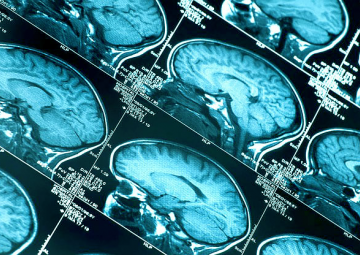
Description
The Sydney Memory and Ageing Study (MAS), is one of Australia’s largest and longest running studies of ageing and cognitive health. MAS began in 2005 with the aims of investigating rates and predictors of healthy cognitive ageing, mild cognitive impairment (MCI) and dementia in older Australians. Over the last 14 years, MAS has collected biomarker, genetic/epigenomic, neuroimaging, cognitive, proteomics/lipidomics, health, and lifestyle data to determine what factors are associated with cognitively normal ageing and progression to MCI or dementia.
To request MAS data please contact the CHeBA Research Bank via email on CHeBAData@unsw.edu.au for a current application form.
Design and Method
At baseline, participants were 1037 older adults without dementia, aged 70–90, who were recruited from Eastern Sydney. Every two years participants take part in a detailed cognitive and medical assessment with the option to donate a blood sample for clinical chemistry and genomics. A knowledgeable informant (close friend or family member) is also interviewed at this time. In addition to these core study components, roughly half of the MAS cohort have had structural MRI scans, with additional subgroups participating in studies of falls and balance, metabolic and inflammatory markers, prospective memory, and social cognition over the years. Currently, MAS participants (N= 362) and their informants (N = 358) are completing the 12-year follow-up assessment.
For more information on recruitment and baseline demographics, see:
- Sachdev PS, Brodaty H, Reppermund S, Kochan NA, Trollor JN, Draper B, … & Mather, KA. (2010). The Sydney Memory and Ageing Study (MAS): methodology and baseline medical and neuropsychiatric characteristics of an elderly epidemiological non-demented cohort of Australians aged 70-90 years. International Psychogeriatrics, 22(8). 1248-1264.
Recent Research Highlights
MAS facilitates advanced research into the genetic, epigenomic, lipidomic, proteomic, neuropathological, neuroanatomical, psychosocial, and neuropsychological aspects of MCI and dementia. Key research findings from the last 12 months across our various research streams are highlighted below:
Genetics/epigenomics:
- An international study of over 300,000 individuals, including participants from MAS, identified 148 independent genetic variants that influence general cognitive function.
- Genetic variants explain over 20% of the variance in blood levels of the growth differentiation factor, GDF-15.
- In a genetics brain imaging study, seven genetic variants were discovered that influence the volume of the lateral ventricles
- Expression of genes from the immune response and protein processing pathways were associated with recurrent major depression
Imaging:
- White matter hyperintensities are associated with falls in older people with dementia.
- Cerebral microbleeds are related to changes in cognition and incident dementia.
- Informant-reported subjective cognitive complaints are associated with whole brain functional connectivity strength.
- Global cognition scores are related to local, rather than large-scale, functional connectivity strength in healthy older adults.
Medical:
- Older adults with MCI are at higher risk for injury-related hospitalisation compared to cognitively healthy older peers, but lower risk than older people with dementia.
- Vascular mechanisms may underpin the relationship between depressive symptoms and cognitive decline in later late.
- Intraindividual variability in stepping predicts falls in older adults with MCI.
Neuropsychology:
- Scores on a brief Telephone Interview for Cognitive Status (TICS) can reliably distinguish between those with and without dementia after one year.
- Visual memory tests can help identify individuals with amnestic MCI who are at greater risk of developing Alzheimer's disease.
- Intraindividual variability in performance on a reaction time test can predict shorter time to death.
Lifestyle:
- Memory-specific subjective cognitive complaints predict conversion to dementia over 6-years.
- Physical inactivity and executive dysfunction are associated with physical decline in individuals with MCI and dementia.
- Obesity is associated with and predicts lower quality of life in older adults. The areas most affected are independent living, social relationships, and the experience of pain.
Core Findings from MAS.
- At baseline, the majority of MAS participants were generally well-functioning, lived independently, and rated their overall physical health as good to excellent. However, a large proportion of MAS participants (96%) endorsed at least one subjective cognitive complaint and nearly 1 in 3 participants met diagnostic criteria for MCI at baseline.
- Risk factors for developing dementia over a 6-year follow-up period include: older age, MCI at baseline, memory-specific subjective cognitive complaints, increased symptoms of anxiety and depression, lower openness scores on a personality test, poorer smelling ability, slower walking speed, slower response time on a simple reaction time test, and being an APOE 4 carrier.
- Measures of subjective cognitive complaints, mood and personality, smelling ability, slower walking speed, and reaction time are relatively easy to administer and may help screen for individuals at risk for developing dementia.
Newsletters
- Sydney Memory and Ageing Study Newsletter, December 2020 (1.9mb, PDF)
- Sydney Memory and Ageing Study Newsletter, January 2018 (1.26mb, PDF)
Publications
Over 190 publications using MAS data have appeared in a large range of respected nation and international journals. To explore this extensive list, please visit Publications. Several of our most recent papers are listed below.
Latest Papers
| Dietary Patterns and Cognitive Health in Older Adults: Findings from the Sydney Memory and Ageing Study | Chen, X., Liu, Z., Sachdev, P. S., Kochan, N. A., O’Leary, F., & Brodaty, H. | The journal of nutrition, health & aging, 1-8. January 2021 |
| The Association of Dilated Perivascular Spaces with Cognitive Decline and Incident Dementia | Paradise M, Crawford JD, Lam BCP, Wen W, Kochan NA, Makkar S, Dawes L, Trollor J, Draper B, Brodaty H, Sachdev PS. | Neurology. January 2021 |
| Cross-lagged modeling of cognition and social network size in the Sydney Memory and Ageing Study | Casey, A. N. S., Liu, Z., Kochan, N. A., Sachdev, P. S., & Brodaty, H. | The Journals of Gerontology: Series B. November 2020 |















